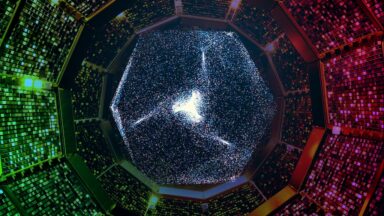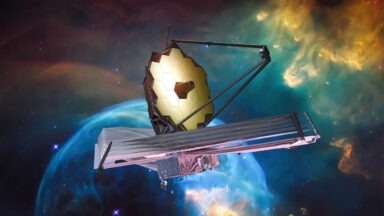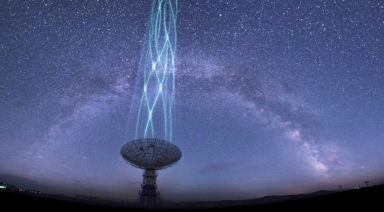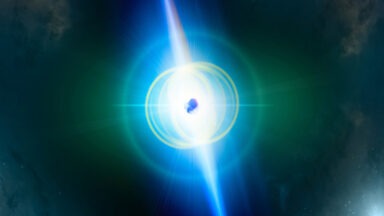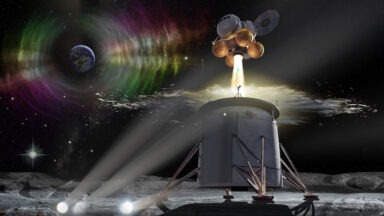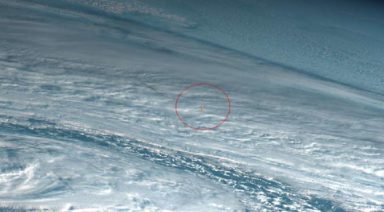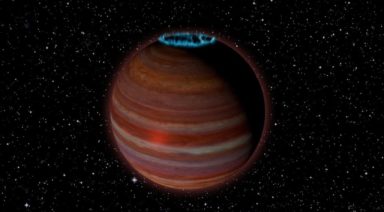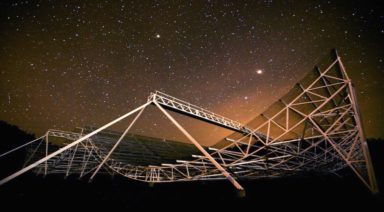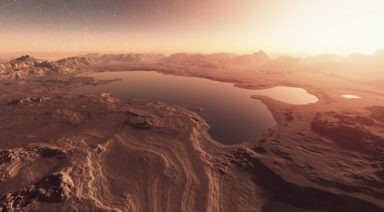New Telescope May Allow Us to View Alien Planets

As a long-awaited space telescope heads toward liftoff, a new survey of U.S. astronomers and astrophysicists puts the search for habitable planets on the top of their list for the next 10 years. This survey by the national academies of sciences, engineering, and medicine, also spelled out how to ramp up resources including ground and space telescopes.
Astronomer and Gaia News contributor Marc D’Antonio weighed in on the report. “There’s a number of aspects to this report which are very important to take away from the news and that is, number one, professional astronomers, tenured professors, astrophysics schools all are saying ‘We know there’s life out there.’ Number two, they’re saying ‘We want to find it.’”
“This is very important because what we’re seeing is part of the continued shift toward that end of the spectrum. So astronomy and astronomers are being dragged kicking and screaming in some cases, not all, down the path to say ‘We know life exists, and we think we can detect it now, and we’d like to,’ that’s a huge shift, I mean a huge shift,” D’Antonio said.
It seems like people in the general public are open to the idea of off-planet life. Why is this report so significant?
“It is news when you consider that academia has never really bought into that. So when you have a Harvard astrophysicist saying this you see the writing on the wall, academia is going down this path and they’re going to keep going down this path. And they’re going to pursue finding life in the universe.”
Meanwhile, the much-anticipated James Webb space telescope is scheduled to finally launch this month after a history of postponements and delays.
Why are astronomers so excited about this telescope?
“If you look at the James Webb’s Space Telescope’s capabilities I think you’ll find that the James Webb is probably the most significant mission in our history to this point on Earth. The reason is because of what it stands to be able to show to us. It might be able to answer the question, the real true question: ‘Is there life out there?’
Because it’s going to be able to see the atmospheres of exoplanets around distant stars. We’ll see things that might indicate that there is life there, and that is a very important revelation that we can’t do right now because we don’t have a telescope that’s really got the resolution to do that. James Webb is right there, so we have that strength on our side. That’s a very important thing, it could answer that ultimate question.”
The National Academies of Sciences weighed in on their hopes for the future. What does D’Antonio look forward to?
“I hope that we identify planets out there that are suitable way stations for travelers from Earth that might want to go there. Sure, we can’t fly the gulf between the stars now, but we know ways to, and we know ways to do it fast and quickly. That’s something I’d love to see. In 10 years I’d love to see an established program to study — I won’t say faster-than-light travel — but warped space travel. I’d love to see progress there.
“I’d love to see the James Webb give us candidates for planets that we think might actually have signs of industrial pollutants, signs of oxygen in the atmosphere inferred from other chemicals in the atmosphere like carbon dioxide and methane, and other possibilities. Those other possibilities, what are those? That’s the mystery. Well, those are signatures of life. The next 10 years promises to show us some incredible things, and hopefully, we’ll understand some of these other phenomena in the universe that are occurring, that right now we don’t understand too well.”
Whether or not the recommendations in the survey will be followed remains to be seen… but the James Webb Space Telescope’s planned launch date is Dec. 22
Government Admits Oumuamua Wasn't First Interstellar Object

The U.S. military confirmed the first interstellar object to hit Earth was years before Oumuamua and corroborates research done by a famous astronomer.
We’ve reported before about Oumuamua, the first interstellar object to enter our solar system in 2017, and Harvard professor Avi Loeb’s book arguing Oumuamua might be extraterrestrial. Whatever it was, its existence was remarkable as the first interstellar object to enter our solar system.
But now, we are learning that Oumuamua was the second interstellar object to enter our solar system, and this discovery was made by none other than Avi Loeb.
In 2019, Loeb, working with his student Amir Siraj, combed through the database of meteors looking for other interstellar objects. When they found evidence of a fast-moving meteor that hit the Earth, they wrote a paper arguing it was interstellar too and preceded Oumuamua by almost four years.
“The referees of the paper that we wrote rejected the paper, and argued that it should not be published,” Loeb said. “Because they don’t trust the government and perhaps the uncertainties that are often quantified in the scientific literature as ‘error bars,’ which they are just the level of uncertainty in the measurements (that) are unknown.”



